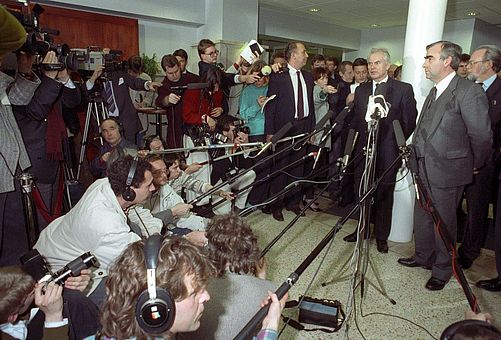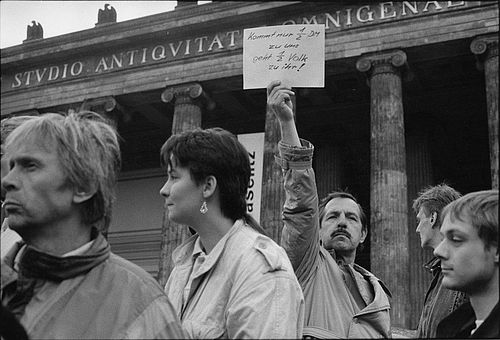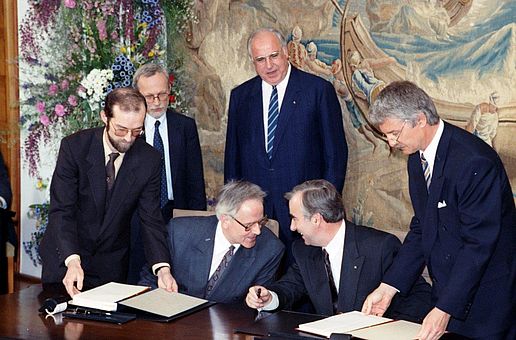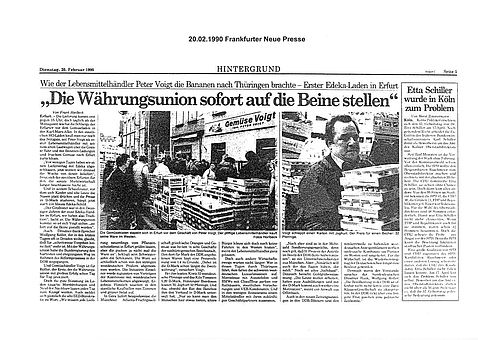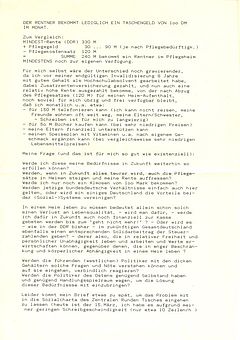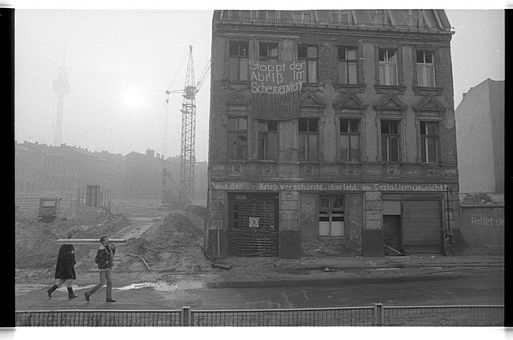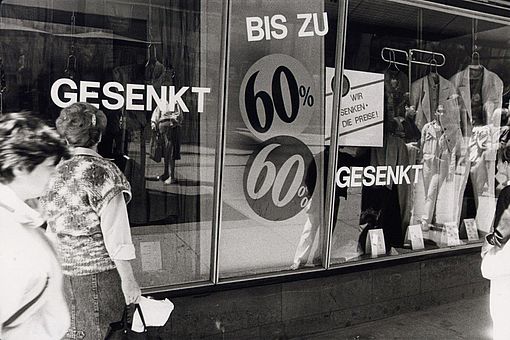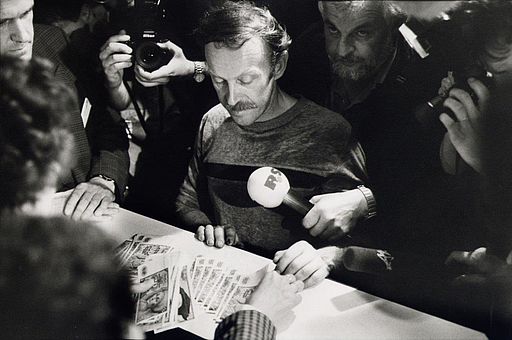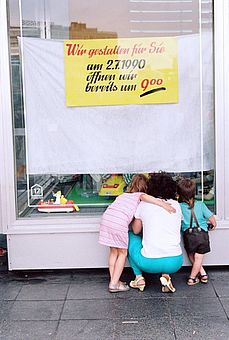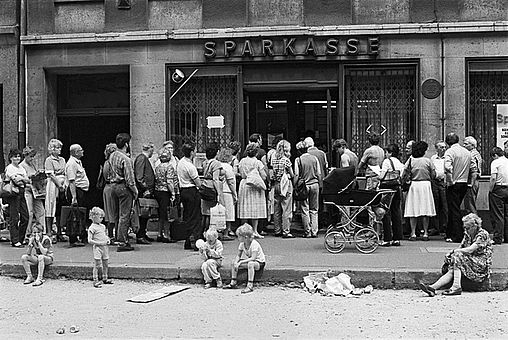
- Старт >
- ОБЪЕДИНЕНИЕ >
- On the road to unification >
- Monetary, Economic and Social Union
Die Währungs-, Wirtschafts- und Sozialunion
Эта статья еще не переведена русский.
Faced with a political, social and economic crisis in the GDR, around a quarter of a million East Germans left the country for West Germany in the first six months of 1990. The great majority were young and well educated.
After the Federal government refused to inject the necessary funds to stabilise the GDR economy, in February 1990 it proposed that the GDR be integrated into the West German monetary and economic system as quickly as possible. On 18 May, East and West Germany signed a treaty on economic, monetary and social union including important provisions on labour and social law.
From 1 July 1990 the Deutschmark was the sole currency in the GDR. To avoid economic and social discrimination, the currency was converted from East German marks to Deutschmarks at a rate of 1:1 for wages, rents and pensions. Free competition, free price formation and the right to own private property were introduced as key elements of a market economy.

